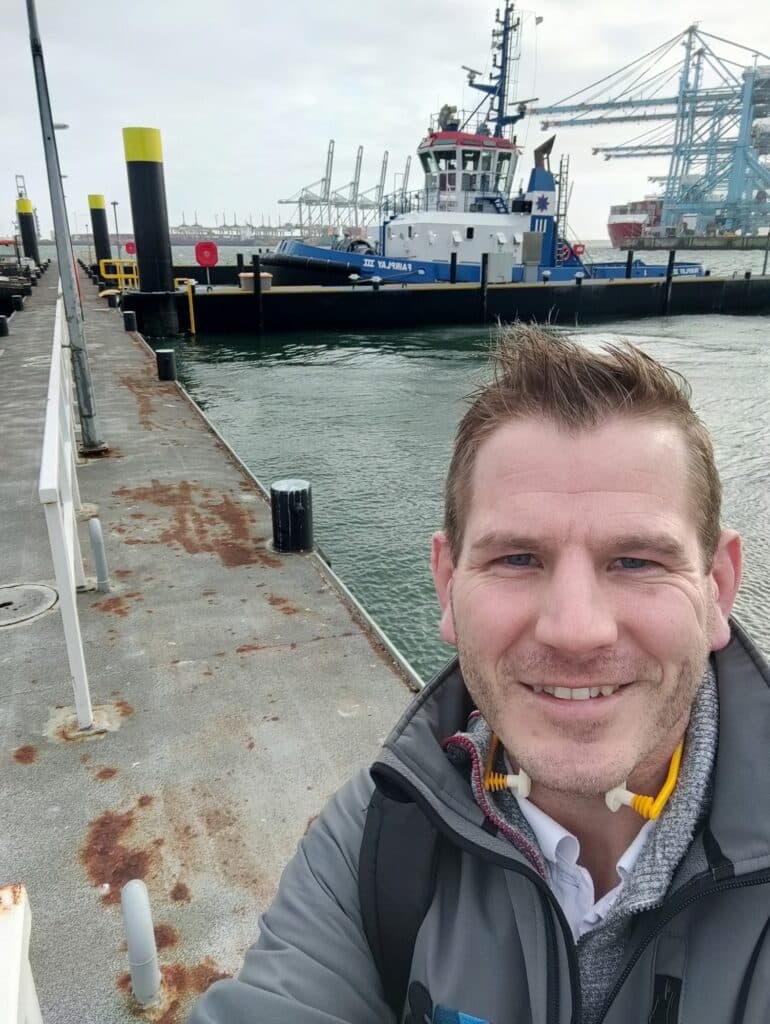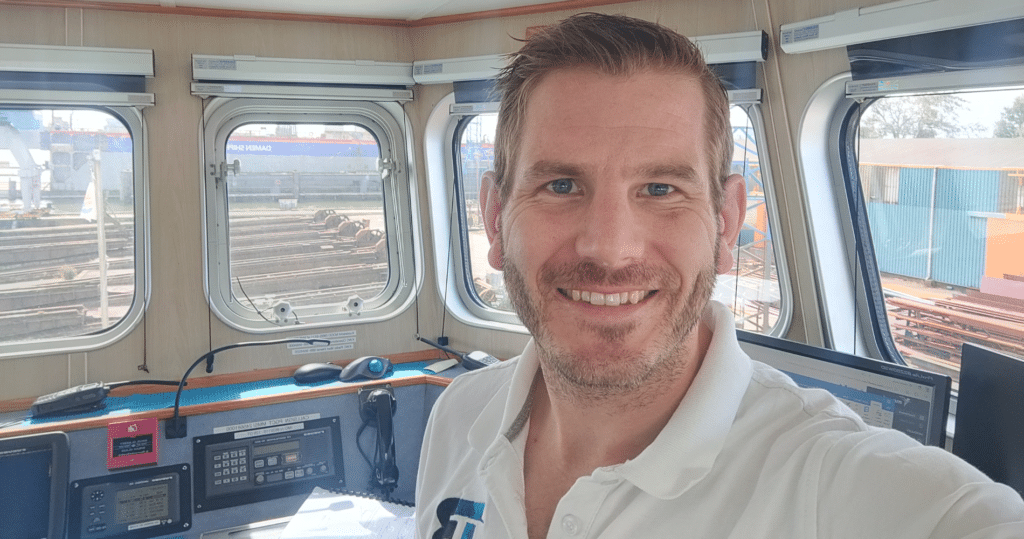Seasickness is not only unpleasant; it is a serious risk to operations on board. Especially in rough conditions, the percentage of sick crew can rise quickly. This means fewer people available for work, more pressure on the rest of the team, and risks to operational continuity. But what if you could see it coming in advance? And even prevent it? This is one of the smart solutions Aldwin Schroot and his company TechBinder work on every day. “With the right data, you can show as an employer that you truly take care of your people.”
Together with Bram van den Boom, Aldwin founded TechBinder in 2019. They noticed that a lot of data is available on board ships, but that it is often too technical. As a result, valuable information remains unused. TechBinder develops solutions that make that data actually usable. A good example is the Smart Vessel Optimizer. This allows shipowners, captains, and operators to easily see how their vessel is performing, such as information on energy consumption, propeller use, or how the ship moves in the waves.
Another key product from TechBinder is Sattelite. This plug-and-play system can be easily installed on board. It collects data from various sensors and turns it into clear information. You don’t need to be a technical expert to work with it. Sattelite works on almost any ship and has been extensively tested. “We increasingly heard the same question from the industry,” says Aldwin. “There is plenty of data available, but what can we actually do with it? Satellite makes that data accessible and understandable.”

Measuring seasickness
One of the newest applications of Satellite is measuring Motion Sickness Incidence (MSI). This means: how likely it is that people on board will get seasick during a particular voyage. The technology collects real-time information on the ship’s movements and accelerations. This data not only shows how the ship behaves, but also how demanding it is for the people working on board.
“Suppose there are one hundred people on board,” Aldwin explains. “With our calculations, we can determine how many of them are exposed to so much movement in an hour that they could develop physical symptoms. An MSI of two percent means that two people could potentially drop out due to seasickness.”
This is valuable information. Not only to make the work more comfortable, but also to keep the operation running smoothly. If several people drop out, the entire schedule can be disrupted.
The big advantage of MSI is that you can see problems coming. This allows you to take timely action, for example by adjusting sailing behaviour if certain speeds or courses cause excessive movement. “The captain can respond to this immediately,” says Aldwin. “Sometimes that literally means sailing a bit slower.”
In combination with weather forecasts, Satellite can even predict the likely MSI during a voyage. This allows shipowners and operators to better plan and improve the availability of their vessels, ultimately delivering better results for the customer.
At an organisational level, this data also helps. It shows that you, as a shipowner or operator, take health and safety on board seriously. “You base your decisions on facts,” says Aldwin. “That is important for your team and for regulators.”

From data to healthier sailing
The technology behind Sattelite and calculating MSI is complex, but the results are easy to understand. Aldwin and his team ensure that all the data is clearly displayed in dashboards. This way, you can see at a glance what is happening on board and whether action is needed. “The calculations are technical,” Aldwin admits. “But the user should simply be able to see: what does this mean for my people?”
For developing the MSI models, TechBinder worked with Ron Boerakker from Sensor Maritime. Their goal was clear: to build a system that is not only accurate, but also practical for use at sea. “Ultimately, it’s about what you can do today to sail healthier tomorrow.”
The conversation with Aldwin shows how technology and common sense can reinforce each other. Especially in the maritime sector, it is important that innovations are not only smart, but also contribute to safer and better working conditions on board. “If we can use technology to prevent people from getting sick or dropping out,” Aldwin concludes, “then that is pure gain — for the people themselves and for the operation.”
Want to know more?
Visit techbinder.nl or sensormaritime.com/product/Satellite
